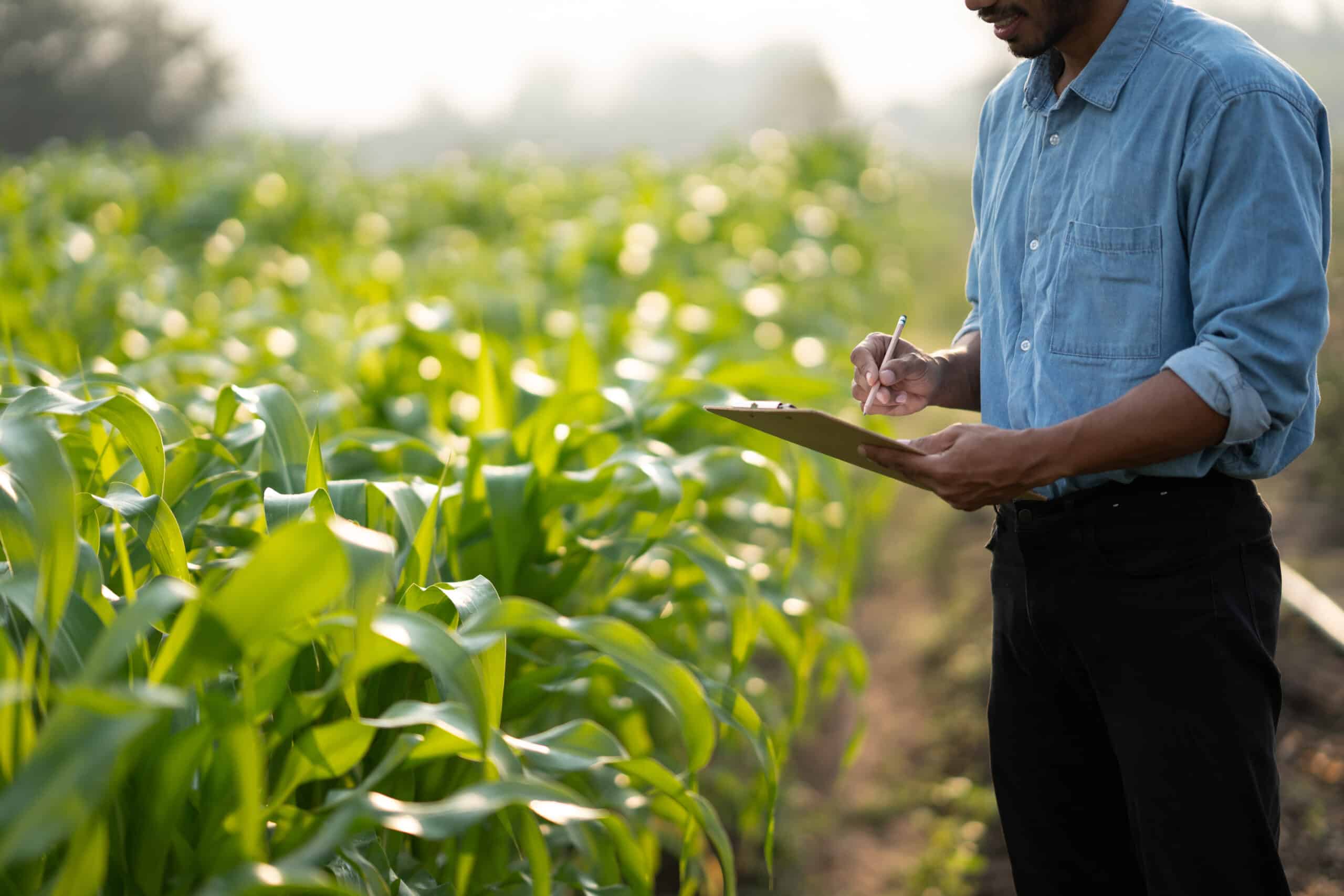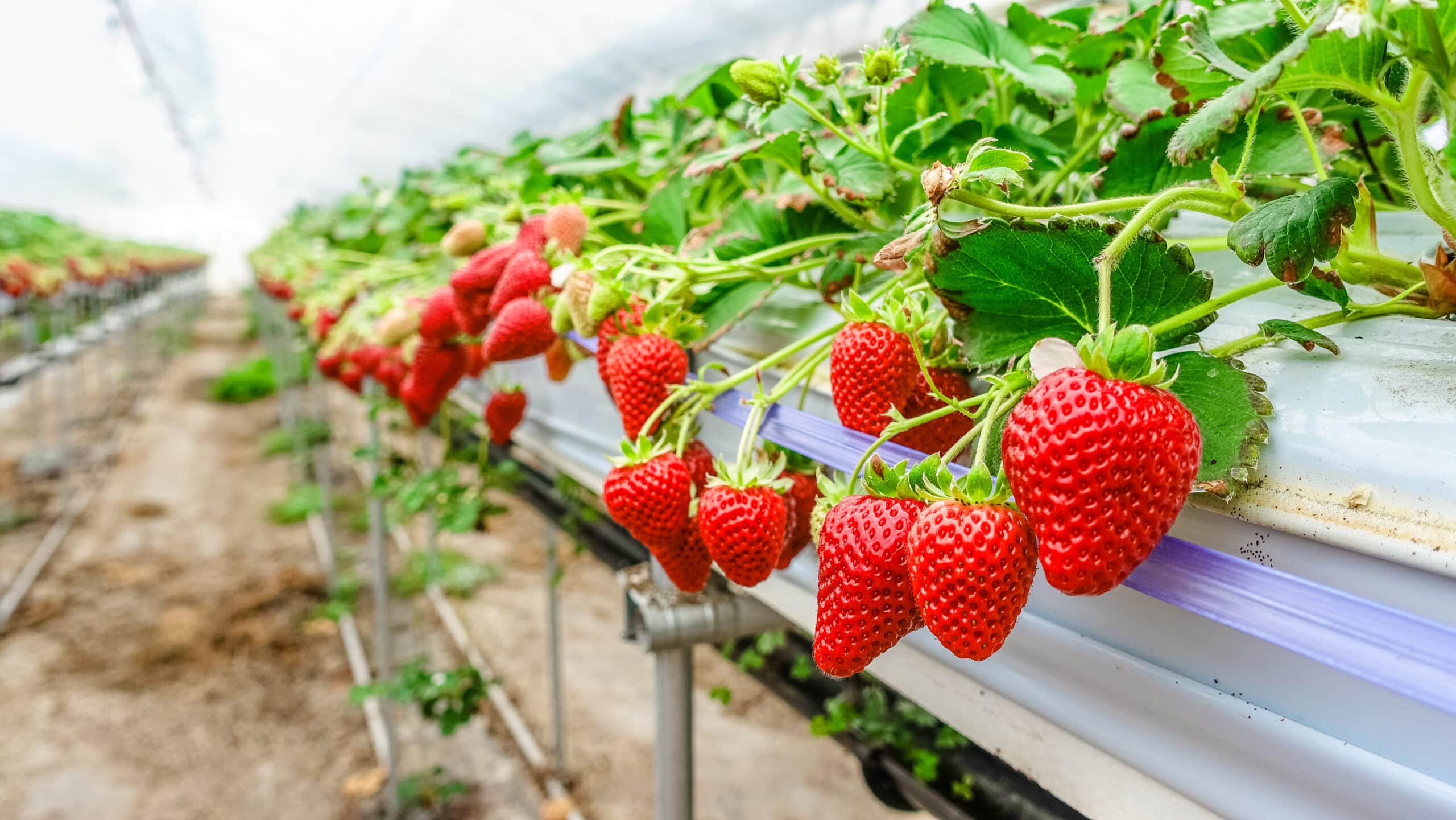Agronomy services help bridge the rift between the lab and the farm, translating scientific research and technological advancements into practical solutions that farmers can implement to improve productivity, sustainability, and profitability.
Providers of agronomy services apply scientific principles to crop production and soil management, offering farmers and landowners the means to improve crop yields and boost soil health. The following article outlines some of the services provided by agronomy service providers, and the impact they can have on farming practices.
Understanding the five types of agronomy services
Broadly speaking, agronomy services fall under five categories: crop and soil management, consultation and training, pest and disease management, environmental stewardship, and technology integration.
Crop and soil management
With 33% of the world’s soil significantly degraded due to erosion, salinisation, compaction, and chemical pollution farmers face mounting challenges in maintaining productive agricultural land. By taking a scientific approach to soil conditions, nutrient management, water usage, and weed control, agronomy services enable farmers to create favourable growing conditions for future crops.
The process usually begins with soil testing. This involves measuring physical and chemical attributes, such as porosity, temperature, pH acidity, and the availability of macronutrients. Based on these test results, agronomy service providers can develop targeted recommendations specific to individual farms and fields. These might include crop rotation plans, ways to disrupt pest and disease cycles, methods for optimising nutrient availability, and strategies to improve soil structure.
Soil tests also help form the basis for agri input recommendations, particularly regarding which type and number of fertilisers to use, as well as their timings and application rates. By carefully planning and managing macro and micronutrients agronomy service providers can increase yields by up to 55% while minimising waste and environmental impact. This process involves tailoring recommendations to specific crop needs, soil types, and local climate conditions, while also considering their long-term impact. This supports optimal plant growth without unduly harming soil health, water resources, or surrounding ecosystems.
Managing irrigation is another important component of crop and soil management, especially in arid regions. Agriculture accounts for approximately 70% of global freshwater withdrawals. Agronomy service providers can facilitate the implementation of precision irrigation practices that can reduce water use by up to 30% while maintaining or improving yields. By harnessing real-time data and employing sensor-driven irrigation scheduling, farmers can optimise water delivery and ensure crops receive the ideal amount of water. Irrigation technologies such as drip irrigation and precision sprinklers, and the use of soil moisture monitoring systems can aid in this process.
Weed control strategies may be employed to minimise competition for resources, helping to protect both yields and soil quality. It is estimated that weeds cause $33 billion in crop losses annually in the U.S. alone, underscoring the importance of robust and proactive weed management solutions. Agronomy service providers can advise on strategies that utilise or combine mechanical, cultural, and chemical control methods. These typically include timely cultivation, cover cropping, and the judicious use of herbicides. They may also recommend conservation tillage practices to reduce soil erosion and improve soil health.
Consultation and training
Agronomy consultation and training can provide significant benefits for both landowners and farm managers. These typically involve frequent farm inspections and soil sampling as well as field trials and performance analysis. But by building a comprehensive map of soil conditions, crop health, and farming practices, agronomy service providers can identify opportunities for improvement and address the specific challenges facing the farm.
Training is a vital aspect of this, as it helps farm workers to stay abreast of new practices and technologies. Agronomy service providers will often host or recommend workshops and seminars dedicated to specific topics, such as precision agriculture, sustainable farming, and other crop science innovations. These initiatives can empower farm workers with the knowledge and skills required to effectively implement new techniques and initiatives.
This training may also extend to a management level, enabling farm owners and managers to learn about strategic planning, resource allocation, data-driven decision-making, and the effective supervision of agricultural operations.
Pest and disease management
Agronomy service providers can help establish disease and pest management plans that protect crops while minimising environmental impact. Common practices include integrated pest management, which takes a holistic approach to pest control, combining biological controls, cultural practices, mechanical methods, and targeted chemical applications to ensure crop health while preserving beneficial insects and reducing the use of chemical pesticides.
Agronomy service providers can also offer guidance on disease management, prevention, and diagnosis. They help farmers identify early signs of infection, develop tailored management strategies to treat plants and prevent future disease from spreading, and recommend disease-resistant cultivars. This integrated approach can reduce crop losses by 10%-20% and significantly lower the need for chemical treatments.
Environmental stewardship
Environmental stewardship has emerged as a critical focus area in agriculture over the past two decades, with the agricultural sector facing increasing pressure to maintain productivity while reducing its environmental footprint.
Agronomy service providers can advise on sustainable farming practices and provide detailed soil management strategies that help to prevent soil erosion and improve nitrogen retention. Typical conservation methods include contour ploughing, terracing, and the establishment of vegetative barriers. These physical interventions are particularly effective when implemented in conjunction with biological soil management strategies such as the use of cover crops, catch crops, and green manures. This combination of physical and biological conservation methods has been shown to reduce soil erosion by up to 90% in some regions, while simultaneously improving growing conditions.
Agronomy service providers may also work with farmers to develop comprehensive carbon management strategies that enhance carbon sequestration by encouraging clients to reduce tillage, better manage crop residues, and integrate perennial crops or agroforestry systems into their operations.
Technology integration
Data is now at the forefront of modern agronomy services. Technologies like variable rate technology (VRT), Internet of Things (IoT)-enabled devices, GPS-guided machinery, and drones are becoming increasingly common on-farm, and when combined with AI and machine learning, they enable the precise monitoring of field conditions and provide real-time insights on critical factors like weather conditions, crop health, and market dynamics.
The collection, analysis, and interpretation of this information is paramount to optimising farm performance. Agronomy services help turn this data into actionable strategies, advising on optimal planting times, irrigation scheduling, nutrient management, pest control measures, harvest planning, and much more. Through sophisticated data analytics, agronomy service providers can identify patterns and trends that might otherwise go unnoticed, enabling proactive rather than reactive farm management. These insights allow farmers to make informed decisions about resource allocation and help them to minimise waste while maximising crop potential.
Agronomy services also allow for the further integration of technology into everyday practice, empowering farmers with innovative tools that enhance decision-making and improve operational efficiency. By leveraging these cutting-edge technologies, agronomy services deliver more precise and timely interventions that enable farmers to maximise yields, reduce environmental impacts, and increase profitability. In fact, this data-driven approach to agricultural management can increase crop yields by 20%-25% and reduce input costs by up to 40%.
Bridging the gap between science and farming
Agronomy services can provide significant benefits for both landowners and farm managers. Whether optimising irrigation practices in arid regions, offering workshops on precision agriculture, or deploying data-driven technologies, agronomy service providers ensure that farmers are equipped with the tools and knowledge to tackle challenges effectively.
At Farrelly Mitchell, we appreciate the importance of agronomy services and the role they play in modern agriculture. Our expertise in agricultural inputs, operations improvement, agtech, and sustainability enables us to deliver tailored solutions that meet the unique needs of our clients. We offer unrivalled insight and practical strategies that can help your agribusiness improve crop yields, enhance operational efficiency, and prepare your business to capitalise on future opportunities. Contact us today to learn how we can help enhance your agricultural enterprise.














